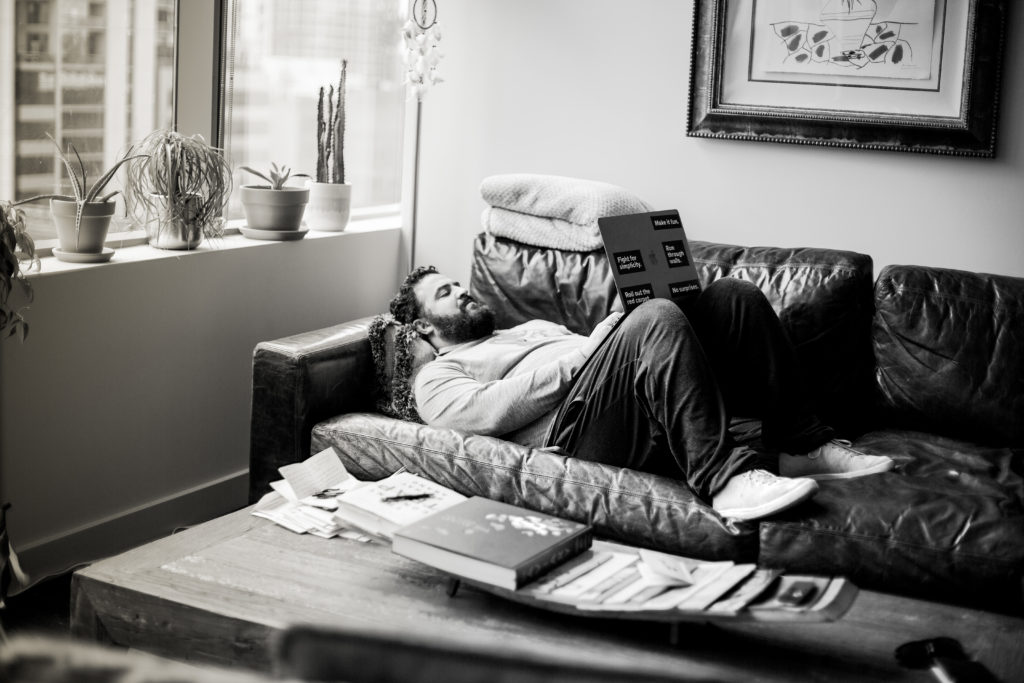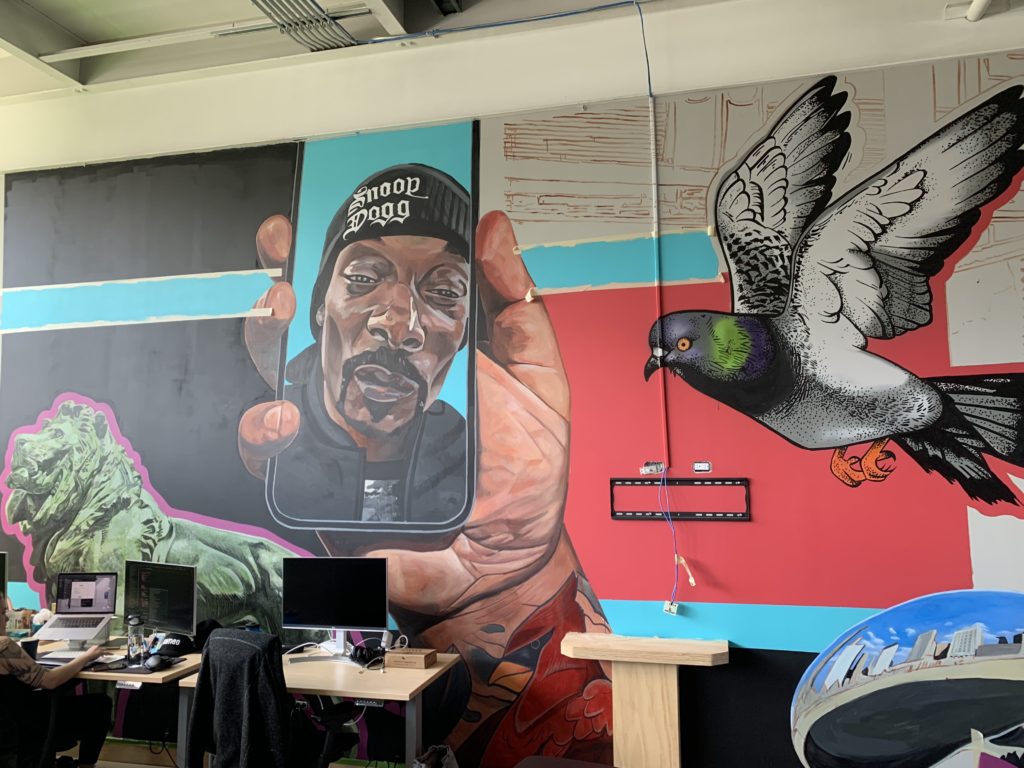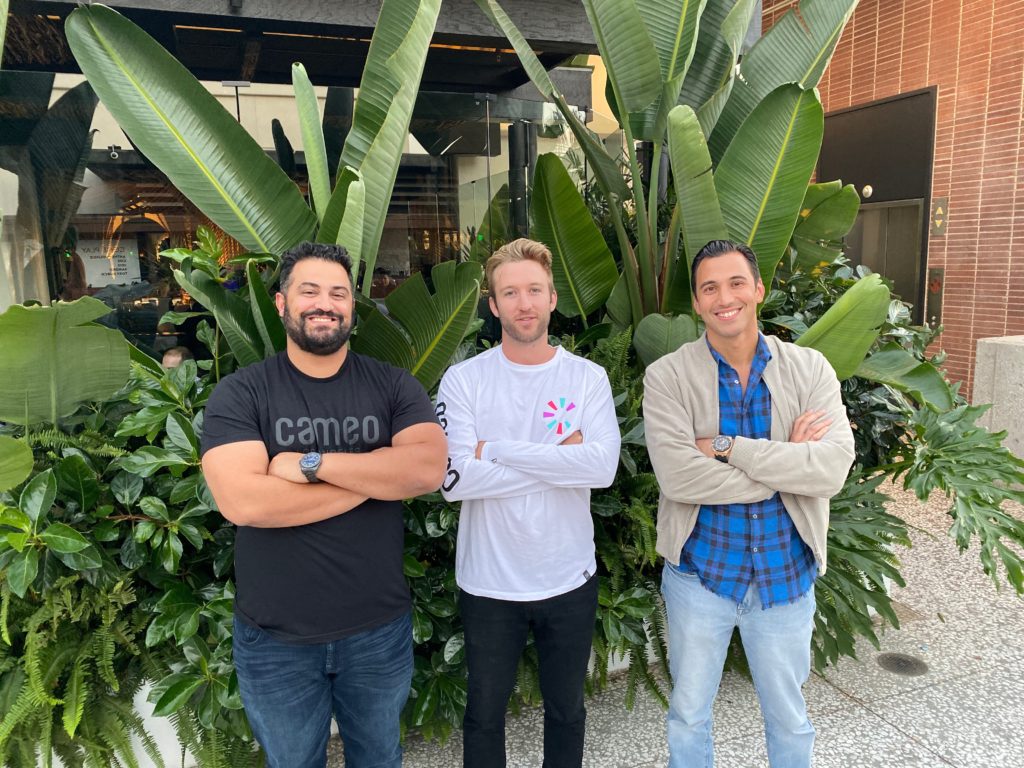On a recent video call with Cameo CEO Steven Galanis, his choice of Zoom background is an aircraft carrier out at sea.
“Wartime CEO,” he said.
It’s a reference to a 2011 essay by Andreessen Horowitz investor Ben Horowitz titled “Peacetime CEO/Wartime CEO.” In it, Horowitz writes about the differences in leading a business in good times and in bad, and how a CEO must adapt management techniques accordingly. “In wartime, a company is fending off an imminent existential threat,” Horowitz writes.
For many CEOs it is, indeed, wartime. The spread of the coronavirus, and subsequent stay-at-home orders across the country, have decimated certain sectors of the economy. U.S. unemployment has surpassed 40 million, as 1 in 4 U.S. workers have now applied for jobless benefits in the last 10 weeks. In the tech world, some 60,000 startup employees have been laid off.
At Cameo, a Chicago startup that lets you buy video shoutout messages from celebrities, wartime has meant making fast decisions around office closures and company travel restrictions, cutting expenses anywhere possible to avoid layoffs, and capitalizing on a unprecedented—and somewhat fortuitous—situation: millions of people are at home with nothing to do, and countless celebrities are looking for ways to connect with fans as their concerts, sporting events, stand-up shows and meet-and-greets are canceled.
“You have people quarantined. You have bars and restaurants closed,” Galanis said. “You have people sitting on their couch that want to connect with their favorite people.”
The result: For Cameo, business has never been better. The company’s revenue was up 400% compared to early March, Galanis said in an interview earlier this month. Cameo was profitable in April, its first profitable month in company history. As a venture-backed startup in growth mode, profitability has never really been a priority, Galanis said. But increased demand coupled with fewer expenses saw the company go from burning nearly $2 million a month to actually turning a profit in April.
Cameo expects to do more than $100 million in bookings this year, and is on the brink of sending its one millionth celebrity shoutout video. The startup takes a 25% cut from each transaction.
“Our growth was just turbo-charged,” he said. “It reminds me of playing Mario Kart. You hit one of those stars and you just start fucking flying. That’s basically what’s happened.”

As a two-sided marketplace, Cameo depends on strong user demand as well as a deep pool of celebrities on its platform. Founded in 2017, the startup has gained traction thanks to names like Tony Hawk, Brett Favre, Charlie Sheen and Snoop Dogg (who also invested in Cameo, which has raised $65 million to date). It’s also benefited from B-list (and below) celebrities like reality TV stars and internet celebrities who’ve developed rabid fan bases.
But since the beginning of coronavirus quarantines, it has added even bigger names to its app. Mike Tyson, Mandy Moore, Albert Pujoles, David Ortiz, Chuck Norris, and football coach Urban Meyer are among the new faces to join Cameo since Covid-19 began in the U.S. Nearly the entire cast of Netflix’s “Tiger King” is on Cameo and were among the app’s most popular celebrities after the show went viral in April.
Galanis said both the talent-side and user-side of Cameo have grown to levels the company wasn’t expecting to reach for another year or two.
“We have all these tailwinds,” he said. “[The question is] how do we capture them long term? How do we make sure this isn’t a flash in the pan?”
‘Is this Armageddon for our business?’
Despite its current momentum, Cameo was not off to a strong start in mid-March. Sales were down 40% during a seven-day period that month, and Galanis called an emergency board meeting to talk through strategy.
“I was really, really worried,” he said. “At that point we had no idea—is this Armageddon for our business?”
To shore up the balance sheet, while also avoiding layoffs, Cameo began to slash expenses. The company cut a range of employee benefits like cell phone, gym and ride-share credits, which Galanis said will save the company about half a million dollars a year. The startup was already in between leases this spring, and decided to wait before pulling the trigger on a new Chicago headquarters. Galanis and the rest of Cameo’s founders all gave up their salaries.
The startup’s expenses also benefited from a near complete lockdown on company travel, a move Galanis instituted in early March—weeks before stay-at-home orders began. Cameo was also one of the first tech companies in Chicago to shift to a completely remote workforce, Galanis said.
“We were having discussions that were like, what happens if the business contracts by 80 or 90%?” Galanis said. “Then you start thinking, what does that mean for employees? What does that mean for the whole business?”

But after that initial down week in March, Cameo’s growth has exploded. People have turned to Cameo for birthday messages when they couldn’t see their loved ones in person. Couples have used Cameo celebrities to let people know their weddings were postponed. High schools have turned to Cameo for virtual graduation messages.
The startup even held a charity event in April that raised $725,000 for Covid-19-related causes, which featured live virtual panels with some of its most notable names.
‘Watching every dollar’
Cameo’s story has so far been one of the fortunate ones. The startup has avoided layoffs, unlike companies like Groupon, SpotHero and many others in Chicago. Its success over the last two months was one reason the startup decided not to apply for a federal Paycheck Protection Program loan.
“But will I regret that in two months if all of a sudden we dip back down because [millions of people] are out of work and consumer discretionary takes hit?” Galanis said.
“Even though we’re doing well now, I don’t think we’re close to out of the woods yet,” he continued. “I think certainly there’s pain ahead for the consumer. I personally believe we’re heading in to a Great Depression.”
Cameo’s greatest threat, Galanis believes, is a weakened economy that makes it harder for someone to justify spending $50, $100 or $500 (if you’re looking for a shoutout from NBA legend Kareem Abdul-Jabbar) on a Cameo. And as bars, restaurants, and other businesses reopen, consumers will have even more options to spend their money, which could put a dent in Cameo’s growth.
“Despite what Cameo has done over the last couple weeks, I believe the pain for us could happen three to six months from now, over the next few quarters, when people are out of work and they’re having a hard time getting jobs,” he said. “They’re watching every dollar they spend.”

It’s impossible to predict how the coronavirus will impact Cameo—or any other business—in the quarters to come. The rapidly changing nature of the virus, and the information available about it, evolves almost weekly. People couldn’t imagine schools would close, until they did. Grocery shoppers never considered wearing a mask, until it became the norm. Handshakes, a staple of American culture, may never feel natural again—at least until there’s a Covid-19 vaccine.
One of the earliest institutors of the “no handshake” rule was Andreessen Horowitz, the aforementioned VC firm. A sign was taped to their front door reading: “Due to the coronavirus, no handshakes please.”
Galanis was visiting the firm’s Silicon Valley office on January 9, well before the coronavirus was a front-page headline in the U.S., and was surprised to see such a rule in place before the first Covid-19 case had even been reported in the U.S.
“Nobody cared about [the coronavirus] yet,” Galanis said. “At the time, did I think they were being overly cautious? Yes. But did this feel like it was something could be serious? Yes.”
